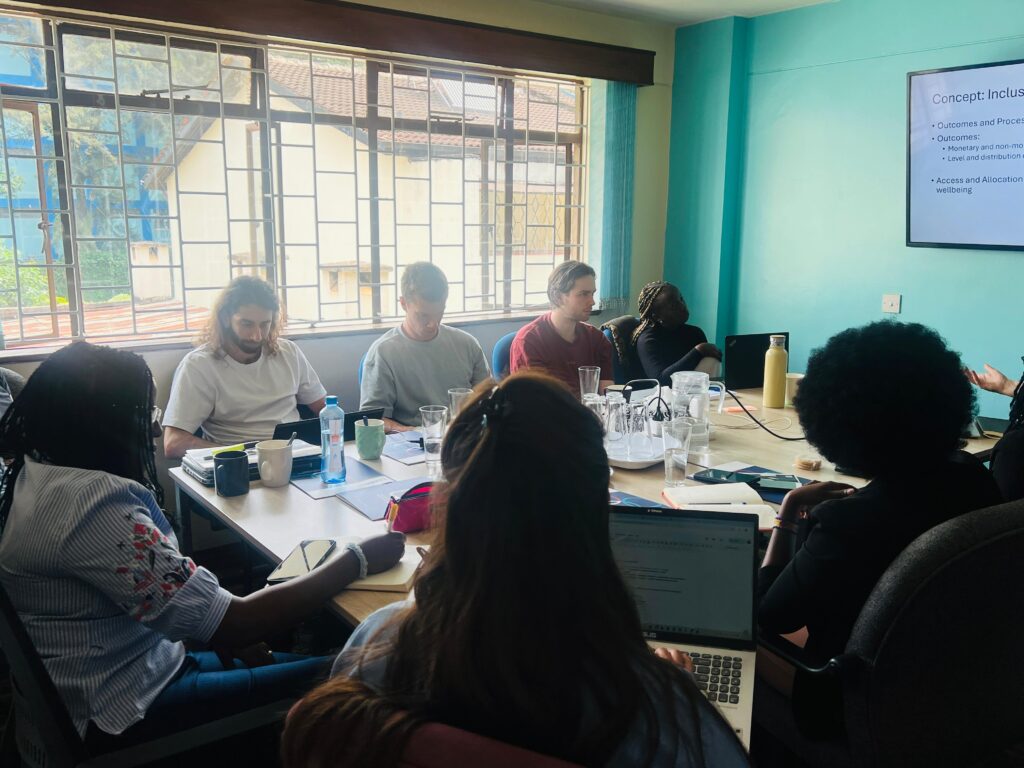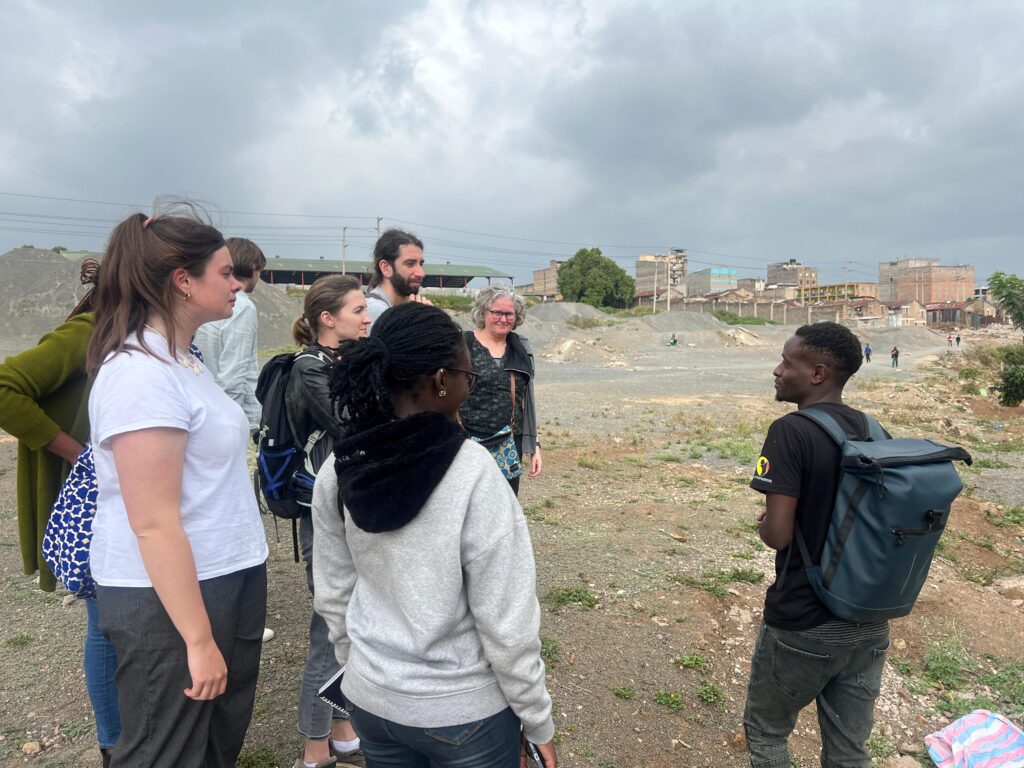Bridging theory and practice through interactive learning in Kenya
 The journey of fieldwork research and thesis writing is a defining experience for master’s students. To enhance this process, the LDE (Leiden-Delft-Erasmus) Thesis Lab Seminar Week, held from 27-31 January in Nairobi, provided an immersive and enriching environment for Kenyan and Dutch students embarking on their research journeys.
The journey of fieldwork research and thesis writing is a defining experience for master’s students. To enhance this process, the LDE (Leiden-Delft-Erasmus) Thesis Lab Seminar Week, held from 27-31 January in Nairobi, provided an immersive and enriching environment for Kenyan and Dutch students embarking on their research journeys.
By Agnieszka Kazimierczuk, project researcher at the ASCL
This seminar week is a core component of the LDE-Nairobi Interdisciplinary Thesis Lab developed in the context of LDE East Africa Research Network (LEARN), with funding from LDE Universities and Leiden University Global Fund. Hosted by the Nuvoni Centre for Innovation Research and co-organised by the African Studies Centre Leiden, this initiative offered an innovative approach to thesis development, blending structured guidance with interdisciplinary learning.
Tackling pressing global issues
This year’s cohort tackled pressing global issues, focusing on disaster risk management and energy planning. More specifically, the students work on urban flooding, fires, sustainable charcoal production, biomass and carbon sequestration, as well as access to electricity in informal settlements. Students will tackle these topics from their respective domains: biodiversity and sustainability, science in Geospatial Information Systems & Remote Sensing, urban and regional planning, management of technology and climate change adaptation. Moreover, the master students from the African Studies programme joined the LDE-Nairobi Interdisciplinary thesis lab as part of their embedded research project.
Tangible societal impact
Unlike traditional classroom-based research training, the LDE Thesis Lab Seminar Week was organised around interactive peer discussions and mentorship-driven workshops, for example on the practice of journalling during research, do’s and don’t’s in interviewing, research waste and how to avoid it. By addressing interdisciplinary themes, students were encouraged to develop their research projects with tangible societal impact. They actively participated in presenting and refining their research projects, receiving constructive feedback from both experienced researchers and fellow participants. This collaborative and immersive approach not only strengthened their thesis proposals, but also brought new and interdisciplinary perspectives fostering a sense of academic community.
 Babadogo settlement
Babadogo settlement
A standout experience of the week was a field visit to the Youthprinua initiative along Nairobi River at Babadogo settlement. This on-the-ground engagement provided students with first-hand exposure to potential research locations and practical challenges faced by local communities. The next phase of the LDE thesis lab includes follow-up mentorship sessions, access to additional resources, and opportunities for collaborative research.
LDE Thesis Lab Seminar Week
The LDE Thesis Lab Seminar Week is more than just a research training programme - it is a model for innovative and interdisciplinary learning. By combining expert guidance, peer collaboration, and fieldwork immersion, this initiative effectively prepares a group of Dutch and Kenyan master’s students for the complexities of academic research and beyond. This initiative sets a precedent for engaging and supporting young researchers in meaningful and impactful ways, reinforcing academic rigor while fostering a vibrant future young professionals (research) community.

